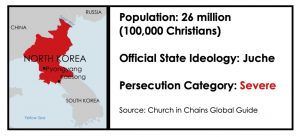
The Democratic People’s Republic of Korea has become known for its aggressive nuclear test programme, the despotic rule of the Kim dynasty and the brutal repression of its people. It is often described as the “Hermit Kingdom” because of its isolation from the rest of the world. The World Food Programme estimates that forty per cent of the population are undernourished and require humanitarian assistance.
North Korea came into existence at the end of the Second World War when the Korean peninsula (a Japanese colony from 1910-1945) was divided into North and South Korea at the 38th Parallel, with Soviet troops occupying North Korea and US troops occupying South Korea. The Soviets withdrew in 1948.
In 1950, North Korean forces invaded South Korea and the Korean War began, with a US/UN force backing the South, while the Soviet Union and China supported the North. (China remains North Korea’s closest ally and biggest trading partner.) Most Christians fled to South Korea or were imprisoned or martyred and churches were bulldozed or converted for secular use. Armistice was declared in 1953 but North Korea remains officially at war with South Korea. From the 1950s there was intense persecution of any remaining Christians, who were accused of being counter-revolutionaries.
Many international reports conclude that there have been no improvements in human rights or religious freedom since a UN Commission in 2014 described the regime’s abuses as “crimes against humanity” and stated that atrocities against Christians could amount to genocide.
Christians in North Korea
Under North Korea’s songbun system, which classifies citizens according to their loyalty to the state, those who practise religion are categorised in the “hostile” class. Considered enemies of the state, they face discrimination, punishment and even execution.
The regime’s drive to eliminate religion targets Christianity and Shamanism, which is deeply rooted among North Koreans, and for many years North Korea has been internationally recognised as the harshest country in the world in which to live as a Christian.
It is impossible to know how many Christians there are in the country and estimates vary greatly. In May 2018 Rev Dr Eric Foley of Voice of the Martyrs Korea estimated that there were approximately 100,000 Christians in North Korea, 30,000 of them in labour camps.
Missionaries brought Christianity to northern Korea from the late 18th century, with huge growth from the 19th century – especially in the northwest – and in 1887 the first Korean Bible was published. The Great Pyongyang Revival of 1907 led to the capital becoming known as the “Jerusalem of the East” as hundreds of churches opened and missionaries founded schools, universities, hospitals and orphanages.
The church was persecuted during Japanese rule but Christianity continued to flourish in the north of the peninsula. When Kim il-Sung came to power, however, he imposed an atheistic regime and Christians began to flee south. Many more fled harsh persecution during the Korean War, when Christianity became viewed as an American religion. After the war tens of thousands of Christians were killed or imprisoned and the church went underground.
North Korean Christians today can only meet in small family groups at home in extreme secrecy and parents often wait until their children are teenagers before sharing their faith with them lest younger children unwittingly disclose their faith, with the inevitable consequence of the whole family being taken to the kwan-li-so (political penal labour camp).
When Christians meet together they must take precautions such as covering the windows and whispering rather than singing hymns because there is such a high risk of being betrayed by neighbours or even by other family members.
Security police visit every home twice a year to check for forbidden literature, including the Bible; if a Christian possesses a Bible they tear it into sections and hide them around the home to avoid detection. Punishment for possessing a Bible or attending an “underground” church gathering may include torture, detention in a labour camp or political prison camp or even public execution. In such cases all family members are punished to the third generation.
Christians in prison camps exist under brutal conditions, semi-starved, cruelly treated by the guards and forced into extremely hard labour in mining, timber cutting or farming enterprises. Atrocities include forced abortion and infanticide. Eyewitnesses report that Christian prisoners receive much more torture than others and that they are given the worst jobs in the prison camps.
While evangelism is forbidden, some foreign Christians have been allowed into North Korea to work with food relief and TB programmes. Chinese missionaries work amongst refugees in China and also inside North Korea, which is very risky. Several foreign Christians have been arrested and imprisoned in North Korea, accused of crimes such as spying for South Korea, attempting to overthrow the government and spreading religious propaganda.
In the capital, Pyongyang, there are four official church buildings (two Protestant, one Roman Catholic and one Russian Orthodox) but they are considered to be “show churches” for foreign visitors.
The Kims
The head of state is Supreme Leader Kim Jong-un. He succeeded his father Kim Jong-il, known as the Dear Leader, who died in 2011. He had succeeded his father Kim il-Sung, known as the Great Leader, who died in 1994 but remains the “eternal president”.
Kim il-Sung was born into a Christian family but rejected the faith of his parents. He became a guerrilla soldier with the Korean Communist Party, trained with the Red Army and was chosen by the Soviet secret police to lead the communist government in Pyongyang.
Kim Jong-un was educated in Switzerland under an assumed name and was only 28 or 29 when he succeeded. His youth and inexperience meant that initially he was thought to be the figurehead of a regime run by influential members of the ruling party, notably his uncle Chang Song-thaek. In December 2013, however, Chang Song-thaek was found guilty of “attempting to overthrow the state” and was executed.
Juche
Before communism, most North Koreans were followers of Buddhism or Confucianism – there are still secret followers of both – but North Korea is now an atheist state with an official state ideology, Juche, first pronounced by Kim il-Sung in 1955 and initially understood as “self-reliance”. Juche gradually became quasi-religious as the personality cult of Kim il-Sung grew (“Kimilsungism”) and many elements are based on Christianity. Juche is so pervasive that the majority of North Korean people have never heard of Jesus and instead venerate the Kims, whose portraits hang on the walls of every public building and home.
In effect, Juche replaces God the Father with Kim il-Sung, God the Son with Kim Jong-il and the Holy Spirit with the Spirit of the People, represented by a torch. Its holy books are the speeches and writings of Kim il-Sung, its hymns are songs praising Kim il-Sung and Kim Jong-il, and the Juche calendar begins on Kim il-Sung’s birthday, 15 April 1912. North Koreans must attend weekly “self-criticism meetings” where they receive ideologically training.
Famine and refugees
North Korea has experienced economic crisis due to a disastrous currency reform, high military expenditure (there are over a million soldiers in the military) and its attempt to become a nuclear power. Economic mismanagement and natural disasters have led to famine and chronic malnutrition and poor agricultural practices and floods caused by deforestation have led to low crop yields and flooding of water supplies and sanitation systems. Over one million people died in a famine in the 1990s and many have starved since then.
Many North Koreans try to escape but they are often captured or killed in the attempt. Thousands tried to escape each year up to 2020, but numbers reduced dramatically following the introduction of pandemic restrictions. The demilitarised zone at the South Korean border is almost impossible to cross, so North Koreans trying to escape opt to cross the rivers bordering China (swimming, walking across ice in winter or bribing guards to let them cross by bridge). Others defect while visiting China or Russia on work visas. Most hope to reach South Korea eventually, where the government provides financial support.
It is estimated that there are between 100,000 and 300,000 North Korean refugees in hiding in China, where they live in terrible conditions, vulnerable to harassment and trafficking as well as forced repatriation. The Chinese authorities and North Korean agents in China – sometimes posing as Christians – hunt down refugees for a bounty and send them back to face prison, torture and possible execution. Those who flee to Laos face similar challenges, making Thailand their only viable option.
In his Foreword to a major report on North Korea published by Christian Solidarity Worldwide in September 2024, “North Korea: We cannot look away”, Lord David Alton of Liverpool, Chair of the UK Parliament’s All Party Parliamentary Group on North Korea, wrote: “The forced refoulement of North Korean refugees to North Korea by China, in direct contravention of the 1951 Refugee Convention, has made China complicit in the crimes against humanity identified by the UN Commission of Inquiry. Forcibly returned refugees face some of the most inhumane treatment under the regime and CSW highlights the plight of North Korean refugees as one of the most dangerous and harrowing journeys to freedom in the world today.”
International reports
In February 2014 the United Nations Commission of Inquiry on human rights in North Korea, established by the UN Human Rights Council in March 2013, released a major 400-page report which concluded that the regime was committing crimes against humanity. It stated that “the gravity, scale and nature” of the violations of human rights in North Korea “reveal a State that does not have any parallel in the contemporary world“.
The Commission was barred from visiting North Korea but took harrowing evidence from several hundred exiled refugees and defectors who detailed crimes against humanity including “extermination, murder, enslavement, torture, imprisonment, rape, forced abortions and other sexual violence, persecution on political, religious, racial and gender grounds, the forcible transfer of populations, the enforced disappearance of persons and the inhumane act of knowingly causing prolonged starvation“.
The report stated that “there is an almost complete denial of the right to freedom of thought, conscience and religion, as well as the rights to freedom of opinion, expression, information and association” and added that the regime “considers the spread of Christianity a particularly severe threat” and that severe punishments are inflicted on “people caught practising Christianity“.
In July 2021, the UK All-Party Parliamentary Group (APPG) on North Korea published a report, “Inquiry into Human Rights Violations in North Korea 2014-2020/1”, which found that the human rights situation had not improved since the publication of the UN Commission of Inquiry report in 2014.
The APPG report – based on evidence from sources including members of the North Korean diaspora and human rights organisations – found that North Korean officials were involved in severe human rights violations including murder, torture, slavery and persecution based on religion or belief and stated that the atrocities “amount to crimes against humanity” and “reach the threshold of genocide, particularly in relation to three groups: Christians; half-Chinese children; and the ‘hostile’ group”.
In September 2024 Christian Solidarity Worldwide (CSW) published a report titled “North Korea: We cannot look away” to mark the tenth anniversary of the landmark UN Commission of Inquiry report. The new CSW report found that “the Kim regime continues to act with flagrant disregard for international standards and citizens face unparalleled violations of human rights, including of the right to freedom of religion or belief” and the report concluded that “In many instances, the violations of human rights found by the Commission constitute crimes against humanity… The gravity, scale and nature of these violations reveal a state that does not have any parallel in the contemporary world.”
In a news release following the launch of the report, CSW stated that it found that “the Kim regime has made no effort to uphold international human rights standards and has taken no steps to participate as an equal and active member of the international community. The situation of human rights in the country remains unchanged at best and may even have deteriorated as a result of the COVID-19 pandemic, an increased prioritisation of weapons testing and development, the introduction of new domestic legislation, and the continued forced repatriation of North Korean refugees from neighbouring China.”
(Asia Link, Asia News, Martin and Bach [2011] Back To The Jerusalem of the East, Fifth Estate, BBC, Christian Solidarity Worldwide, Daily NK, Guardian, Mission Network News, Open Doors [North Korea Info & Action Guide, 2018], Operation World, Release International, RTE, World Watch List, United Nations)
NORTH KOREA: Fresh calls for release of three missionaries
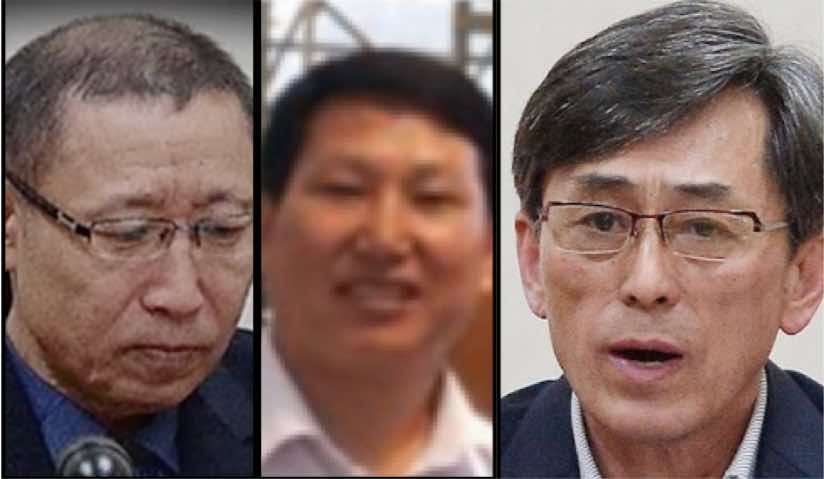
The call came following a ruling by the United Nations Working Group on Arbitrary Detention
NORTH KOREA: Ten years since Pastor Choi Chun-gil’s arrest
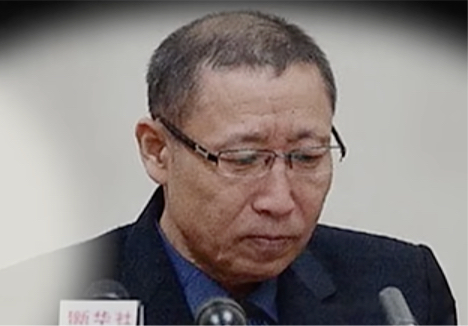
December sees the tenth anniversary of South Korean missionary Choi Chun-gil’s arrest and imprisonment
NORTH KOREA: New report finds “unparalleled violations of human rights”
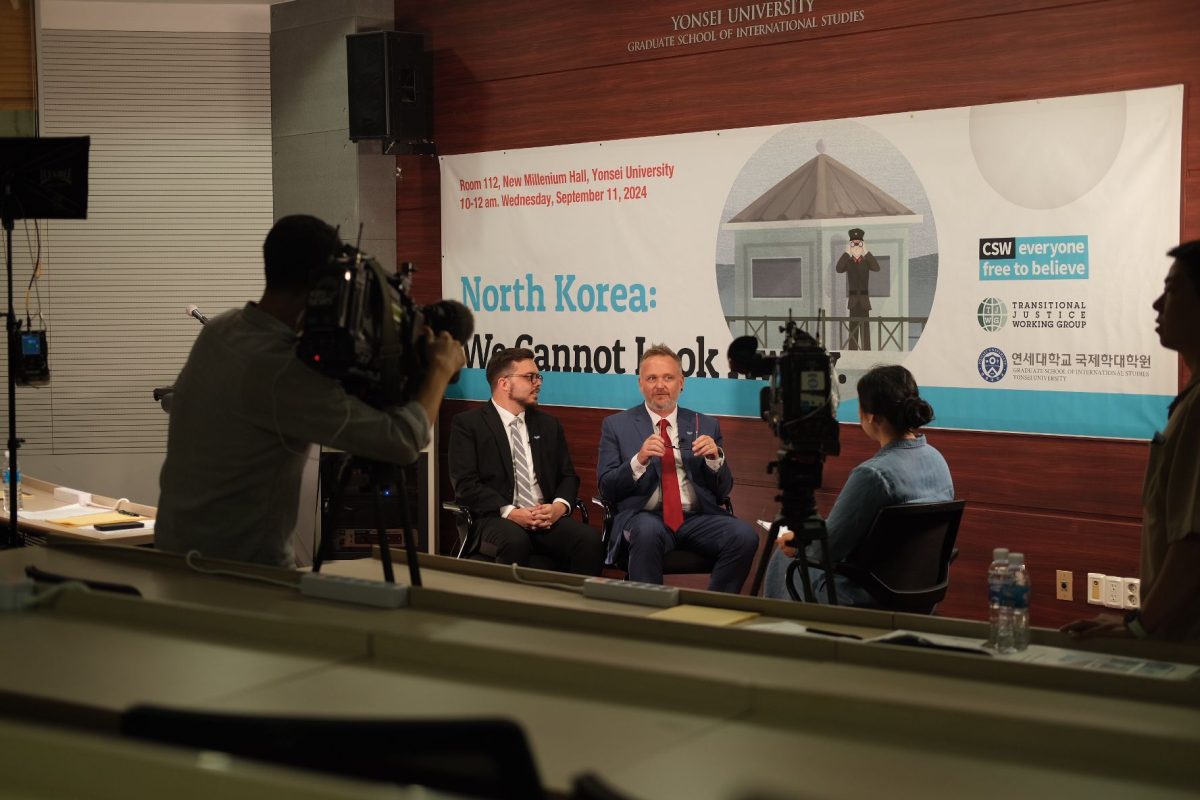
The report by Christian Solidarity Worldwide finds “flagrant disregard for international religious freedom standards”
GLOBAL GUIDE LAUNCH: Over 200 million Christians at constant risk of persecution
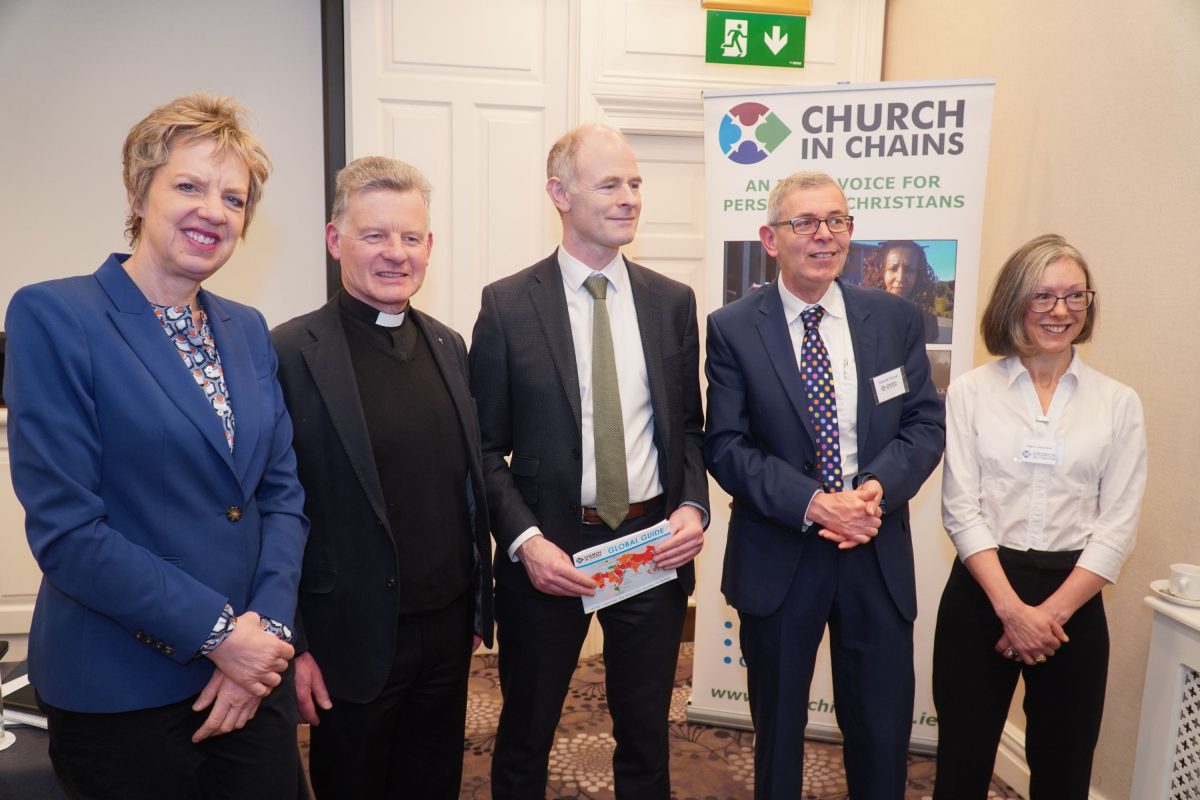
The Global Guide was formally launched by Rev Trevor Sargent (Church of Ireland minister and former Green Party leader).
